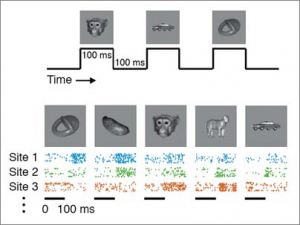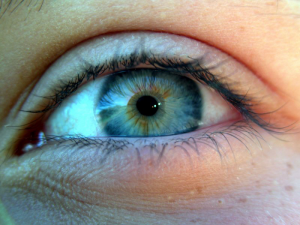A team of neuroscientists and bioengineers from MIT’s Department of Brain and Cognitive Sciences and Center for Biomedical Engineering have been able to partially restore the vision of rodents whose visual neural pathways had been severed by injecting them with a tiny, biodegradable substrate on which brain cells were able to regrow and reconnect. The …
Tag: vision
Jan 20 2006
How the Brain Reassembles Visual Input
It happens automatically and so quickly that most people probably never question the process of vision. Although it starts with the eyes, the majority of the work is performed in stages by cooperating layers of neural regions in the brain. As such, the underlying mechanism behind seeing and recognizing objects has long been of interest …
Jan 02 2006
Continuous Visual Guidance Important for Walking
A recent experiment by researchers from Great Britain finds that ongoing visual feedback during walking plays a more critical role than once thought. It was previously believed that vision was crucial only while lifting your foot to take a step and not as important once the target of your step was determined and your foot …
Dec 09 2005
New Machine Vision Algorithm for Depth Perception
Although there have been many advances in machine vision, most relatively simple robots are still not able to maneuver around objects at high speeds because they are unable to quickly judge their distance from the objects. In order to tackle this problem researchers from Stanford University have developed a new algorithm that many said was …
Nov 05 2005
Scientists Decipher Visual Neural Output
MIT has published a news release about how neuroscientists in the McGovern Institute for Brain Research have recently made significant advances in their attempts to learn how the inferotemporal (IT) cortex identifies and categorizes visual data. The ability to visually recognize objects, while usually taken for granted because it happens quickly, automatically, and subconsciously, is …
Nov 01 2005
Rice University Blindsight Study
LiveScience.com has a summary of a study published this week in the online edition of Proceedings of the National Academy of Sciences that provides additional evidence of the phenomenon known as blindsight, residual visual sensitivity experienced in the brain even when one is blind or otherwise unable to see. While the results of the study …


